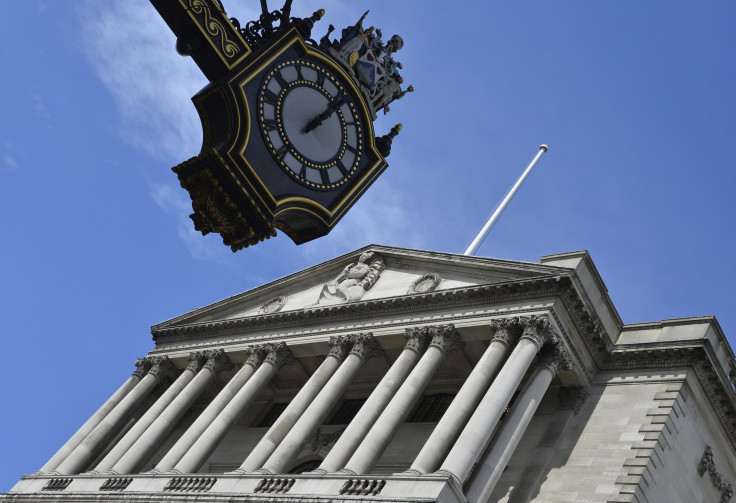UK Rate Rise In 2015 To Test High-Debt Households

(Reuters) - Britons who have relied on years of record-low interest rates to manage hefty mortgages are looking nervously ahead to 2015, when the Bank of England finally looks set to start raising rates.
British people have more debt per head than in any other big rich economy, at around 140 percent of income, barely down from its peak as the financial crisis broke and equivalent to 1.5 trillion pounds in total.
Fast economic growth and signs wages may finally be rising mean markets now expect rates to rise in the second half of 2015, after more than six years at a record low 0.5 percent.
But the Bank will have to tread a cautious path, as the borrowers hit hardest by higher interest rates are likely to be those who gain least from the recovery.
Stagnant earnings and fewer repossessions mean Britons have made smaller inroads into their debt than U.S. borrowers, one reason some analysts see the Bank raising rates more slowly than the Federal Reserve. And government forecasts see debt ratios rising above pre-crisis highs within a few years.
High debt could exaggerate the impact of increased rates on consumer spending, although the Bank expects an impact in line with previous cycles, with every 1 percentage point hike cutting household spending by 0.5 percent, around 5 billion pounds.
Nonetheless, over half of borrowers in a BoE survey published on Monday said they would cut spending if interest rates rose to 2.5 percent.
"Even though household debt is very high, people haven't been feeling the impact. When interest rates do start to rise, it will finally dawn on people," Moody's Analytics UK economist Zach Witton said.
Lenders estimate a quarter-point rise would add just 16 pounds a month to payments on an average mortgage. But averages could be misleading when looking further ahead, economists say.
Post-crisis changes to bank lending practices mean rates of interest vary widely.
Some, who took out mortgages before rates were slashed in 2009, now pay as little as 0.5 percent but will be fully exposed to rate rises. Later borrowers are likely to be paying higher rates -- reflecting banks' greater risk aversion -- but these may be fixed.
IT worker Michael, who did not want to use his full name, and his wife bought a 350,000 pound apartment in London in May 2013 with a 10 percent deposit. Banks offered to lend more but at an interest rate of around 5 percent, they did not want to stretch themselves.
"You've got to be pretty stupid as a home-buyer to think (rates) are not going to go up at some point," Michael said.
STRETCHED BORROWERS
But others may have lost the well-paying jobs that enabled them to borrow before the crisis, and are only getting by thanks to record-low rates.
UK Asset Resolution, which manages 58 billion pounds of mortgage debt from failed lenders, said in October it was contacting 20,000 customers who might struggle if interest rates rose by 1 percent, to help them plan.
Furthermore, while the Bank has said it will not hike until wages are higher, that does not necessarily mean the borrowers who are most heavily indebted -- often those in low-paid, insecure work -- will see pay rises.
"More vulnerable households have more pessimistic income expectations for the next 12 months," Monday's BoE study said.
That concerns Matthew Whittaker, chief economist at the Resolution Foundation, a think tank focused on the low-paid.
He estimates the number of households in "debt peril" -- where interest payments exceed half of take-home pay -- could double to more than a million if rates rise to 3 percent by 2018, even if wages rise in line with official forecasts.
The Bank expects a smaller increase, and says less than 2 percent of households are likely to be at risk of financial distress, lower than before than financial crisis.
Britain's Financial Conduct Authority now requires lenders to make much closer checks that people taking out new mortgages can afford repayments, reducing options for existing borrowers who get into trouble. They may find it hard to switch to a new mortgage with repayments spread over a longer period or move to a cheaper home.
Banks can make exceptions to the new rules for existing borrowers, and the FCA should do more to promote this before rates start to rise significantly, Whittaker said.
"We need the FCA to step in and encourage them," he said. "This window of opportunity isn't slamming shut just yet."
© Copyright IBTimes 2024. All rights reserved.











